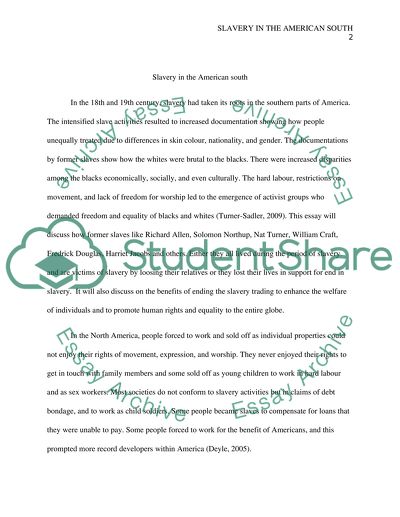Cite this document
(“Slavery in the American south Essay Example | Topics and Well Written Essays - 1500 words”, n.d.)
Retrieved from https://studentshare.org/history/1608306-slavery-in-the-american-south
Retrieved from https://studentshare.org/history/1608306-slavery-in-the-american-south
(Slavery in the American South Essay Example | Topics and Well Written Essays - 1500 Words)
https://studentshare.org/history/1608306-slavery-in-the-american-south.
https://studentshare.org/history/1608306-slavery-in-the-american-south.
“Slavery in the American South Essay Example | Topics and Well Written Essays - 1500 Words”, n.d. https://studentshare.org/history/1608306-slavery-in-the-american-south.


